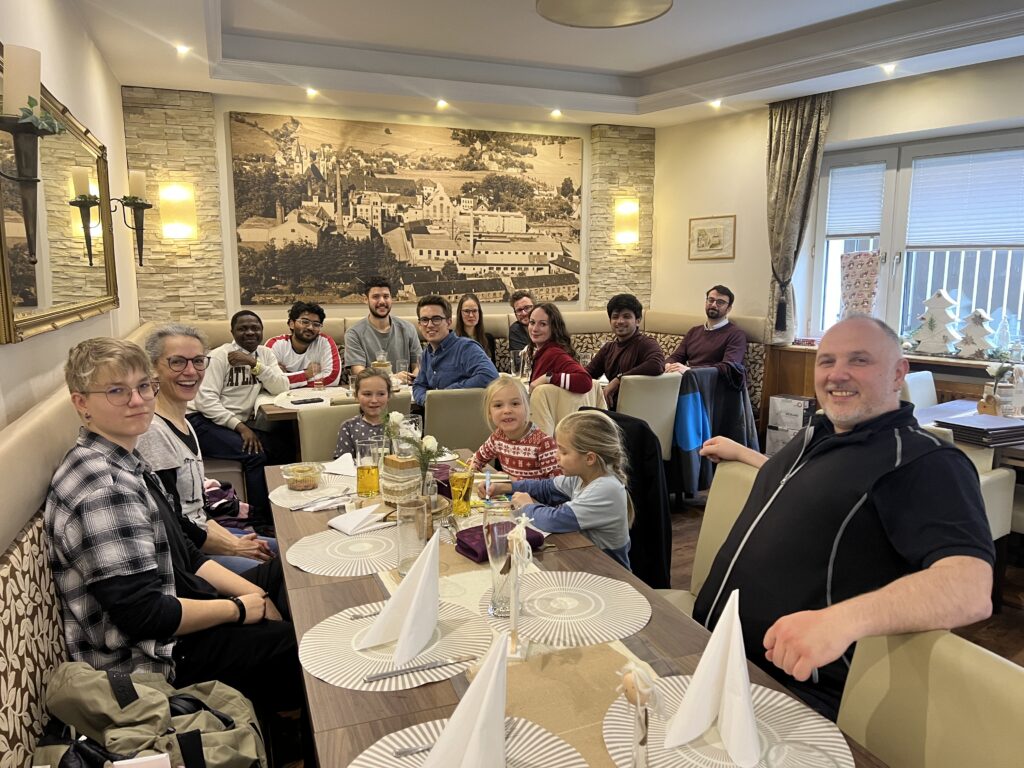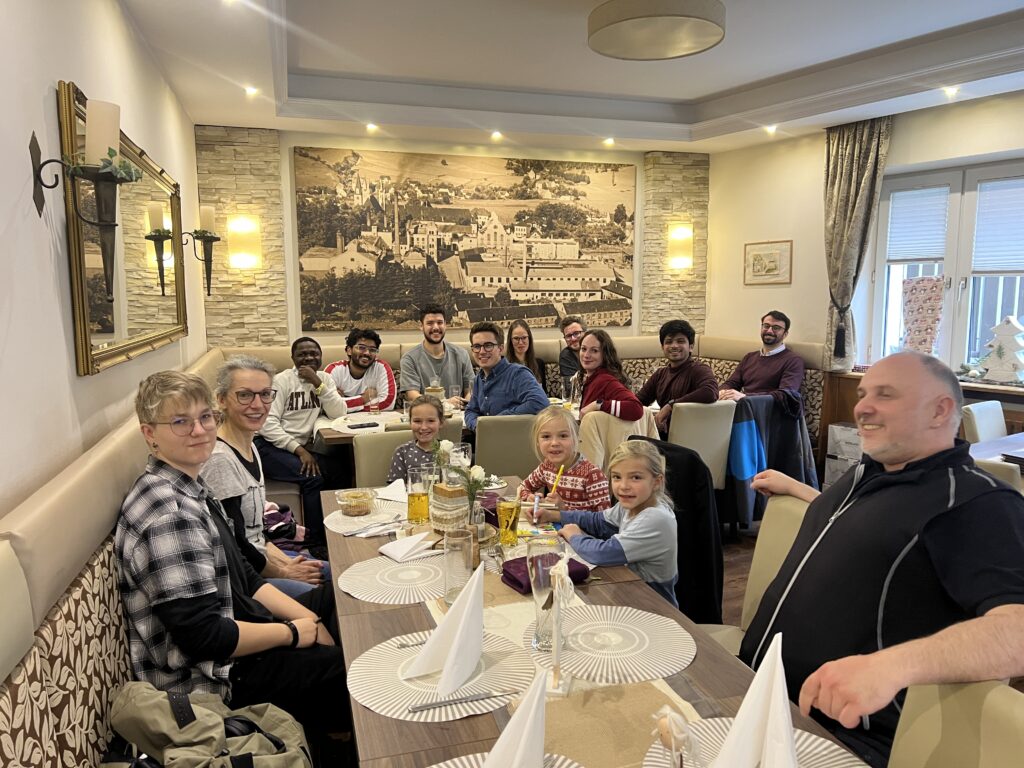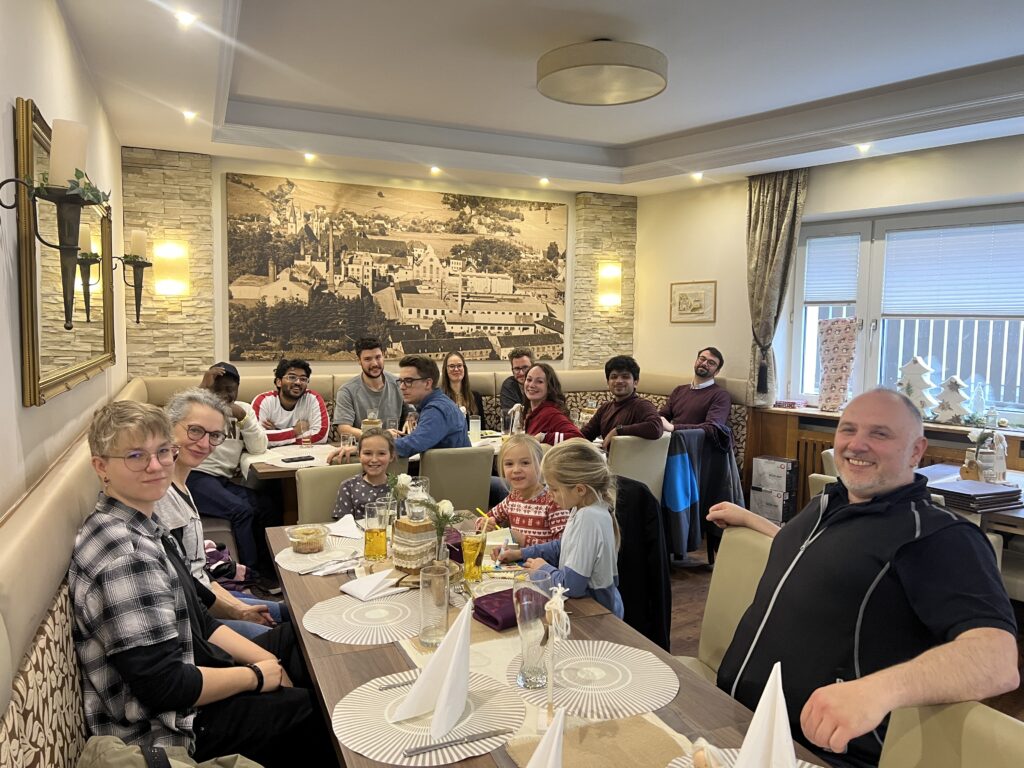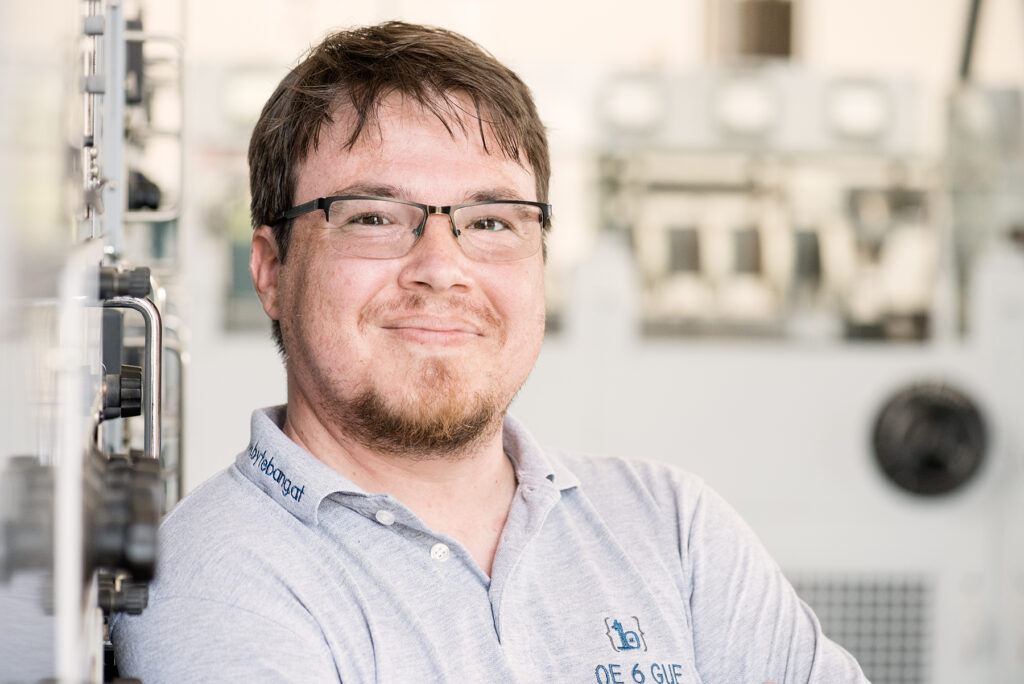Thank you to the CPS team for a successful year, which we concluded with a delightful Christmas party at the local restaurant Erlsbacher in Leoben.



Thank you to the CPS team for a successful year, which we concluded with a delightful Christmas party at the local restaurant Erlsbacher in Leoben.




Short bio: Katharina Binder joined the CPS team in November 2025 and is responsible for organizational and administrative matters. She holds a diploma from the International Bilingual Business College in Hetzendorf with a focus on marketing. Before that, she completed her secondary education at the Higher Institute for Tourism in Krems, specializing in tourism management. She also studied political science at the University of Vienna.
Katharina Binder
Sekretariat des Lehrstuhls für Cyber-Physical-Systems
Montanuniversität Leoben
Franz-Josef-Straße 18,
8700 Leoben, Austria
Phone: +43 3842 402 – 1901
Email: sandra.binder@unileoben.ac.at
Web: https://cps.unileoben.ac.at

Short bio: Mr. Guenther Hutter will start at CPS on 1st of September in 2025.
Günther Hutter is an experienced educator and researcher in the fields of computer science, automation, and cybersecurity. He holds degrees in Software Design and Advanced Security Engineering from the University of Applied Sciences Kapfenberg, both awarded with distinction. His professional background includes leadership roles in software development and PLM integration, with a focus on software architecture, data quality, and industrial IT systems.
Since 2017, he has served as head of the IT & Smart Production division at HTL Leoben, where he is responsible for curriculum development and interdisciplinary laboratory instruction across multiple engineering domains. His teaching and research interests encompass embedded systems, industrial communication, IT security, and open-source educational technologies. As founder of bytebang e.U., he also engages in applied research and consulting in IoT, data visualization, and system integration.
Guenther Hutter, M.Sc.
Doctoral Student supervised by Univ.-Prof. Dr. Elmar Rueckert.
Montanuniversität Leoben
Roseggerstrasse 11 ,
8700 Leoben, Austria
Phone: +43 3842 402 1901
Email: TBA
Web Work: CPS-Page
Chat: WEBEX
Personal Website: bytebang.at
GitHub: bytebang
LinkedIn: Günther Hutter
[/aam]